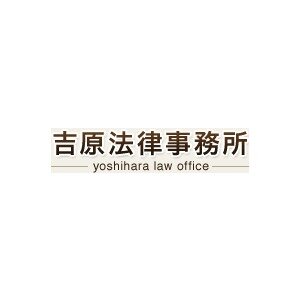Best Native People Lawyers in Sapporo
Share your needs with us, get contacted by law firms.
Free. Takes 2 min.
List of the best lawyers in Sapporo, Japan
About Native People Law in Sapporo, Japan
In Sapporo, Japan, the term "Native People" typically refers to the indigenous Ainu community. The Ainu are an ethnic group with a distinct language and culture, recognized historically as the indigenous people of Hokkaido, the northernmost island of Japan, where Sapporo is located. Historically, the Ainu have faced various legal and social challenges. With the recognition and promotion of Ainu rights in recent decades, laws have been established to protect their cultural identity, land rights, and welfare.
Why You May Need a Lawyer
Legal advice can be essential for Ainu individuals and their communities when dealing with issues related to land rights, cultural preservation, and discrimination. For anyone with Ainu heritage, challenges may arise in safeguarding their ancestral domains and traditional practices. Additionally, educational and financial support mechanisms for the Ainu, which are provided for under specific legislations, may require legal navigation to access fully.
Local Laws Overview
The key aspects of local laws related to Native People in Sapporo, Japan, are centered on the 'Ainu Promotion Act' which acknowledges the Ainu people as an indigenous group and aims to preserve Ainu culture and traditions, and promote their social and economic development. This Act promises to rectify discrimination and ensure equal opportunities. Moreover, it includes measures for the protection of Ainu cultural properties and the promotion of Ainu education and culture through various institutions and initiatives.
Frequently Asked Questions
What rights do the Ainu people have under Japanese law?
The Ainu people have rights to preserve their culture, language, and traditions, as recognized under the Ainu Promotion Act. They also have the right to be free from discrimination and enjoy equal opportunities.
How can I access financial support for Ainu cultural projects?
Financial support can be accessed through grants and subsidies offered by various governmental agencies dedicated to Ainu welfare and the promotion of Ainu culture.
Can a lawyer help with land rights disputes?
Yes, a lawyer can provide legal assistance in cases of land disputes and help advocate for the rights of the Ainu individuals and communities concerning their ancestral lands.
Are there any educational programs specific to the Ainu people?
There are educational programs and initiatives aimed to promote and sustain Ainu culture and language, and these sometimes involve legal guidance to be effectively implemented or accessed.
How does the Ainu Promotion Act protect Ainu cultural properties?
The Act provides frameworks for the cataloging, preservation, and management of Ainu cultural properties, which can include ceremonial objects, historical sites, and artifacts.
Is discrimination against the Ainu people illegal in Japan?
Discrimination against any ethnic group, including the Ainu, is illegal in Japan. The country's laws aim to promote equality and punish acts of discrimination.
Can Ainu people seek restitution for historical injustices?
Seeking restitution for historical injustices is complex, and the assistance of a lawyer experienced in indigenous rights and Japanese law will be crucial.
Where can Ainu people find legal representation?
Legal representation can be found at law firms with experience in indigenous and human rights law or through legal assistance programs run by the government or NGOs.
What kind of legal aid is available for the Ainu people?
Ainu individuals may access legal aid through public legal assistance services, as well as through specialized programs aimed at supporting the indigenous population.
Are there cultural sensitivity considerations in the Japanese legal system?
The Japanese legal system recognizes the need for cultural sensitivity, especially regarding the laws and provisions that directly address the Ainu population's needs and rights.
Additional Resources
For those seeking more information or assistance, the "Ainu Association of Hokkaido" and the "Foundation for Research and Promotion of Ainu Culture" (FRPAC) are vital resources. The 'Upopoy National Ainu Museum and Park' also serves as a central hub for cultural education and awareness. The 'Hokkaido Ainu Centre' provides resources and support for Ainu people, particularly in health, education, and culture.
Next Steps
If you need legal assistance in Native People law, it is advisable to reach out to legal professionals who specialize in indigenous rights and Ainu-related legislation. Begin by gathering any relevant documents and information pertaining to your case. You can then contact the aforementioned Ainu-related organizations for guidance or seek a referral to a suitable lawyer through the local bar association or legal aid office in Sapporo, Japan.
Lawzana helps you find the best lawyers and law firms in Sapporo through a curated and pre-screened list of qualified legal professionals. Our platform offers rankings and detailed profiles of attorneys and law firms, allowing you to compare based on practice areas, including Native People, experience, and client feedback.
Each profile includes a description of the firm's areas of practice, client reviews, team members and partners, year of establishment, spoken languages, office locations, contact information, social media presence, and any published articles or resources. Most firms on our platform speak English and are experienced in both local and international legal matters.
Get a quote from top-rated law firms in Sapporo, Japan — quickly, securely, and without unnecessary hassle.
Disclaimer:
The information provided on this page is for general informational purposes only and does not constitute legal advice. While we strive to ensure the accuracy and relevance of the content, legal information may change over time, and interpretations of the law can vary. You should always consult with a qualified legal professional for advice specific to your situation.
We disclaim all liability for actions taken or not taken based on the content of this page. If you believe any information is incorrect or outdated, please contact us, and we will review and update it where appropriate.









